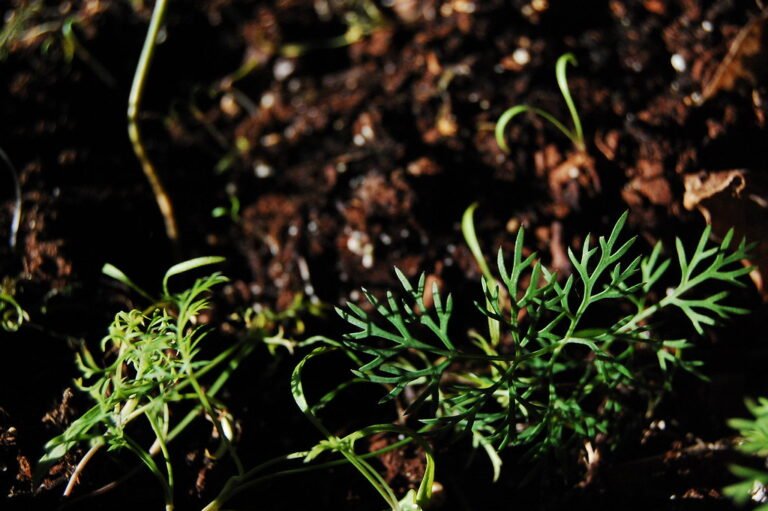Understanding the Benefits of Companion Planting With Eggplants
Are you looking to maximize your eggplant yield while promoting a healthy garden ecosystem? Discover the incredible benefits of companion planting with eggplants. By strategically planting compatible plants alongside your eggplants, you can naturally control pests, enhance soil health, suppress weeds, and increase biodiversity. This informative article will guide you through the practical steps of understanding and implementing companion planting techniques with eggplants, allowing you to create a balanced and thriving garden that serves you and your plants.
The Importance of Companion Planting
To fully maximize the potential of your eggplant garden, it is essential to understand the importance of companion planting. Companion planting is the practice of strategically placing different plants together to create a mutually beneficial environment. When it comes to eggplants, companion planting can help deter pests, improve pollination, and enhance soil fertility.
One of the most effective companion plants for eggplants is basil. Basil not only repels pests like aphids and spider mites but also enhances the flavor of the eggplants. Another great companion plant is marigold, which acts as a natural insect repellent, keeping away harmful pests. Additionally, planting eggplants near beans can improve soil fertility, as beans are nitrogen-fixing plants that replenish the soil with essential nutrients.
Maximizing Yield With Eggplant Companions
To maximize your eggplant yield, plant them alongside compatible companion plants. Companion planting is an ancient gardening technique that involves planting different plants together to promote their growth and health. When it comes to eggplants, there are several companion plants that can help maximize their yield. One of the best companions for eggplants is basil. Basil not only repels pests that can damage eggplants but also enhances their flavor. Another great companion for eggplants is marigold. Marigold flowers attract beneficial insects like ladybugs, which feed on pests that attack eggplants. Additionally, planting beans near eggplants can help improve soil fertility by fixing nitrogen. Lastly, planting spinach or lettuce around eggplants can provide shade and reduce weed growth. By carefully choosing companion plants, you can maximize your eggplant yield and enjoy a bountiful harvest.
Pest Control Through Companion Planting
One effective way to control pests when companion planting with eggplants is by attracting beneficial insects. These insects can help keep harmful pests at bay, reducing the need for chemical pesticides and promoting a healthier garden ecosystem. Some beneficial insects that are attracted to eggplants include ladybugs, lacewings, and parasitic wasps. Ladybugs, also known as lady beetles, feed on aphids, mites, and other small insects that can damage eggplants. Lacewings are voracious predators of aphids, caterpillars, and other soft-bodied pests. Parasitic wasps lay their eggs inside pest insects, effectively killing them. To attract these beneficial insects, you can plant companion plants such as marigolds, dill, and yarrow near your eggplants. These plants release scents and oils that attract beneficial insects, making them an excellent natural pest control solution.
Enhancing Soil Health With Eggplant Companions
Enhance the health of your soil by planting companion plants alongside your eggplants. Eggplants have specific soil requirements, and by choosing the right companion plants, you can improve the overall soil health in your garden. One excellent choice is planting legumes, such as beans or peas, near your eggplants. Legumes have a unique ability to fix nitrogen from the air and deposit it in the soil, which is beneficial for eggplants that require a nitrogen-rich environment. Another option is planting marigolds around your eggplants. Marigolds release natural compounds that repel harmful nematodes and other pests that can damage the soil. Additionally, planting herbs like basil or dill near your eggplants can deter pests while also enriching the soil with their nutrient-dense foliage. By strategically choosing companion plants, you can create a harmonious ecosystem that promotes healthy soil and thriving eggplants.
Weed Suppression and Eggplants
By planting companion plants alongside your eggplants, you can effectively suppress weeds and promote the health of your eggplants. Weeds can compete with your eggplants for essential nutrients, water, and sunlight, hindering their growth and productivity. However, by strategically selecting companion plants, you can create a natural barrier that prevents weed growth. For instance, planting marigolds around your eggplants not only adds a pop of color to your garden but also releases chemical compounds that repel certain types of weeds. Additionally, planting cover crops like clover or buckwheat can help suppress weeds by acting as a living mulch, shading the soil and preventing weed seeds from germinating. Remember to regularly monitor your garden and remove any persistent weeds manually to ensure the health and productivity of your eggplants.
Improving Pollination With Companion Plants
To improve pollination of your eggplants, consider incorporating companion plants into your garden. Companion plants can attract pollinators like bees and butterflies, increasing the chances of successful pollination. One excellent companion plant for eggplants is the marigold. Marigolds have bright, attractive flowers that produce nectar, which is irresistible to pollinators. By planting marigolds near your eggplants, you create a vibrant and enticing environment for bees and butterflies to visit. Another great companion plant is borage. Borage is known for its blue flowers that are a favorite of bees. By planting borage alongside your eggplants, you not only improve pollination but also enhance the overall health and productivity of your garden. Remember to choose companion plants that have similar growing requirements to your eggplants to ensure they thrive together.
Enhancing Biodiversity in the Garden
As you incorporate companion plants into your garden to improve pollination, you'll also be enhancing biodiversity in your garden. Companion planting is a technique where different plants are grown together to benefit each other. By choosing a variety of companion plants, you create a diverse ecosystem that attracts a wide range of beneficial insects, birds, and other wildlife. This increased biodiversity helps to maintain a balance in your garden, reducing the risk of pests and diseases. For example, planting flowers like marigolds or lavender alongside your eggplants not only adds beauty to your garden but also attracts pollinators like bees and butterflies. Additionally, some companion plants can act as natural pest deterrents, such as planting basil or mint near your eggplants to repel pests. By enhancing biodiversity through companion planting, you not only create a healthier and more sustainable garden but also contribute to the overall health of the environment.
Nutrient Cycling and Companion Planting
Enhance the nutrient cycling in your garden by incorporating companion planting with eggplants. Companion planting is a gardening technique where different plants are grown together to benefit each other. When it comes to nutrient cycling, companion planting with eggplants can be particularly beneficial. Eggplants have deep roots that can access nutrients deep in the soil, making them excellent nutrient accumulators. They are known to accumulate nutrients like potassium, calcium, and magnesium. By planting eggplants alongside other crops, they can help improve the overall nutrient availability in the soil. Additionally, certain companion plants, such as legumes like beans and peas, can fix nitrogen in the soil, which is essential for plant growth. This means that by planting eggplants with nitrogen-fixing plants, you can help increase the nitrogen content in your garden soil, benefiting all the plants in your garden. So, consider incorporating eggplants into your companion planting strategy to enhance nutrient cycling and promote healthier plant growth in your garden.
Creating a Balanced Ecosystem With Eggplant Companions
Improve the biodiversity of your garden by incorporating eggplant companions. Creating a balanced ecosystem with eggplant companions is a practical and effective way to promote the health and productivity of your garden. By carefully selecting companion plants that work well with eggplants, you can enhance the overall well-being of your garden and serve your plants better.
One important aspect of creating a balanced ecosystem is pest control. Certain plants, such as marigolds and basil, can help deter pests that commonly affect eggplants. Marigolds release a chemical that repels nematodes, while basil acts as a natural insect repellent. Including these plants alongside your eggplants can help to reduce the need for chemical pesticides and keep your plants healthy.
Another benefit of incorporating eggplant companions is increased pollination. Flowers, such as zinnias and sunflowers, attract pollinators like bees and butterflies. These insects play a crucial role in the fertilization process, which in turn leads to better fruit production for your eggplants.
Additionally, some companion plants can improve soil health by providing nutrients and preventing soil erosion. Legumes, like beans and peas, have nitrogen-fixing capabilities, which means they can convert atmospheric nitrogen into a form that is usable by plants. This nitrogen enrichment benefits not only the legumes themselves but also other plants in the vicinity, including eggplants.
Successful Crop Rotation With Eggplants
To successfully rotate your eggplant crops, you can follow a systematic approach that promotes the health and productivity of your garden. Crop rotation is a crucial practice that helps prevent the buildup of pests and diseases in your eggplant beds. It involves moving your eggplants to different areas of your garden each year, ensuring that they are not planted in the same spot consecutively. Start by mapping out your garden and dividing it into different sections. Then, rotate your eggplants with other unrelated crops like tomatoes, peppers, or legumes. This rotation strategy helps break the life cycle of pests and diseases that may target your eggplants. Additionally, it allows the soil to replenish its nutrients and reduces the risk of nutrient depletion. Remember to keep a record of your crop rotation schedule to ensure maximum effectiveness. By implementing a successful crop rotation plan, you can enjoy healthier and more productive eggplants year after year.
Conclusion
In conclusion, companion planting with eggplants offers numerous benefits for your garden. By choosing the right companions, you can maximize your yield, control pests, enhance soil health, suppress weeds, and promote biodiversity. Additionally, companion planting helps with nutrient cycling and creates a balanced ecosystem. Don't forget to incorporate successful crop rotation strategies to ensure the long-term health and productivity of your eggplant plants. Happy gardening!






